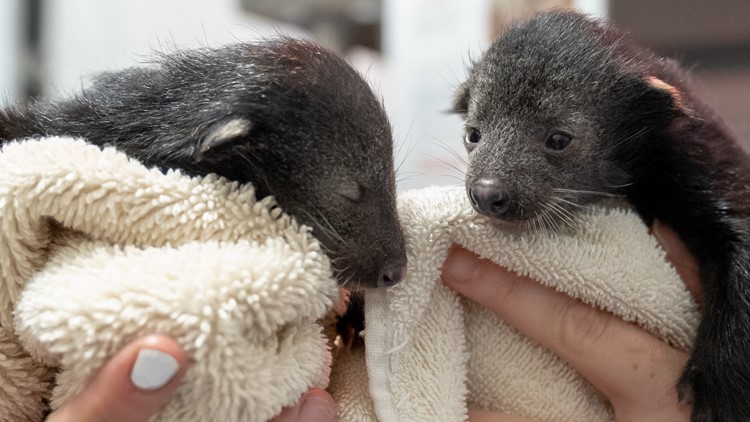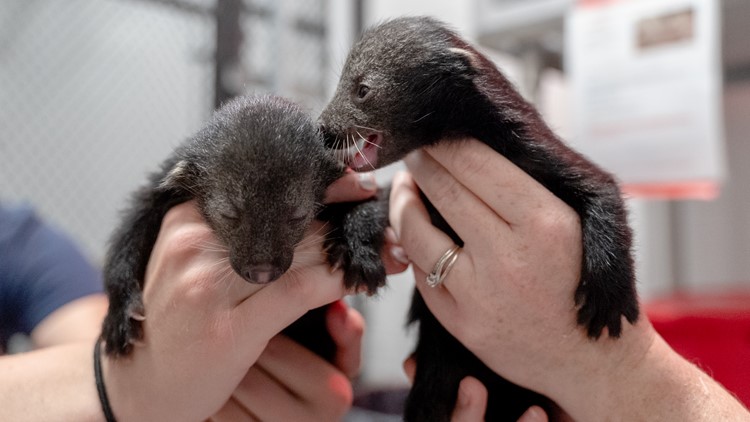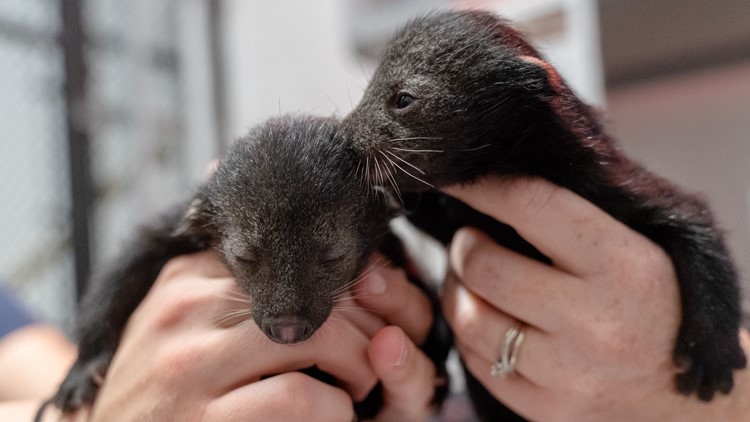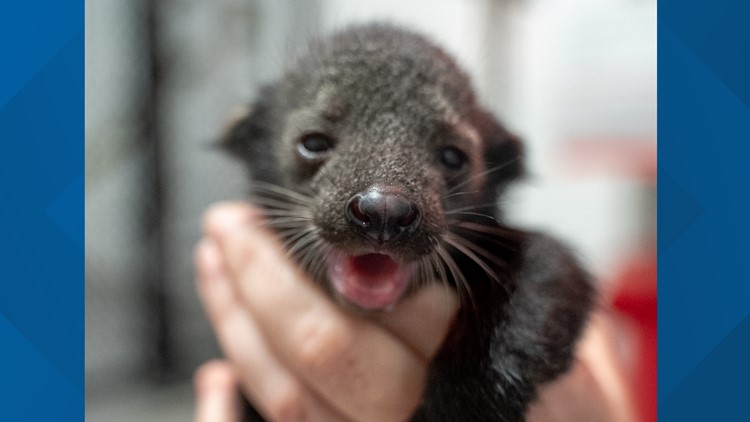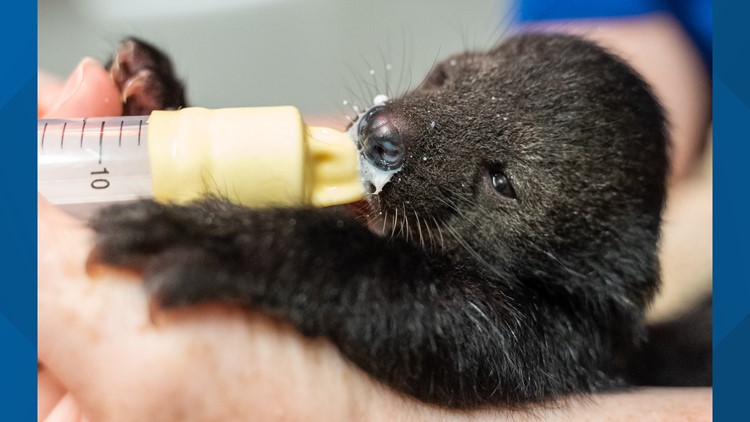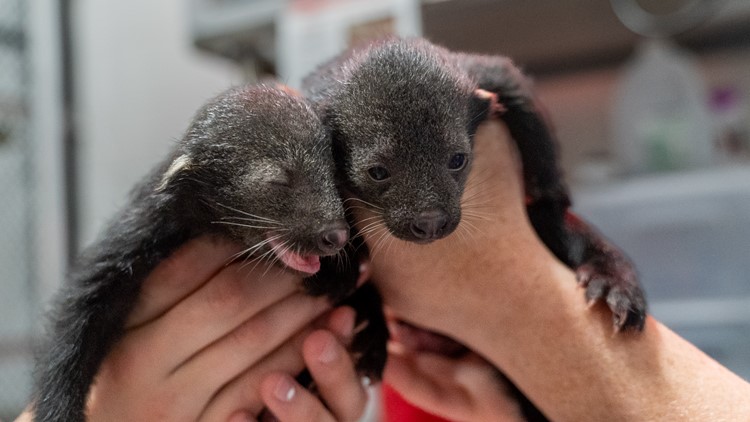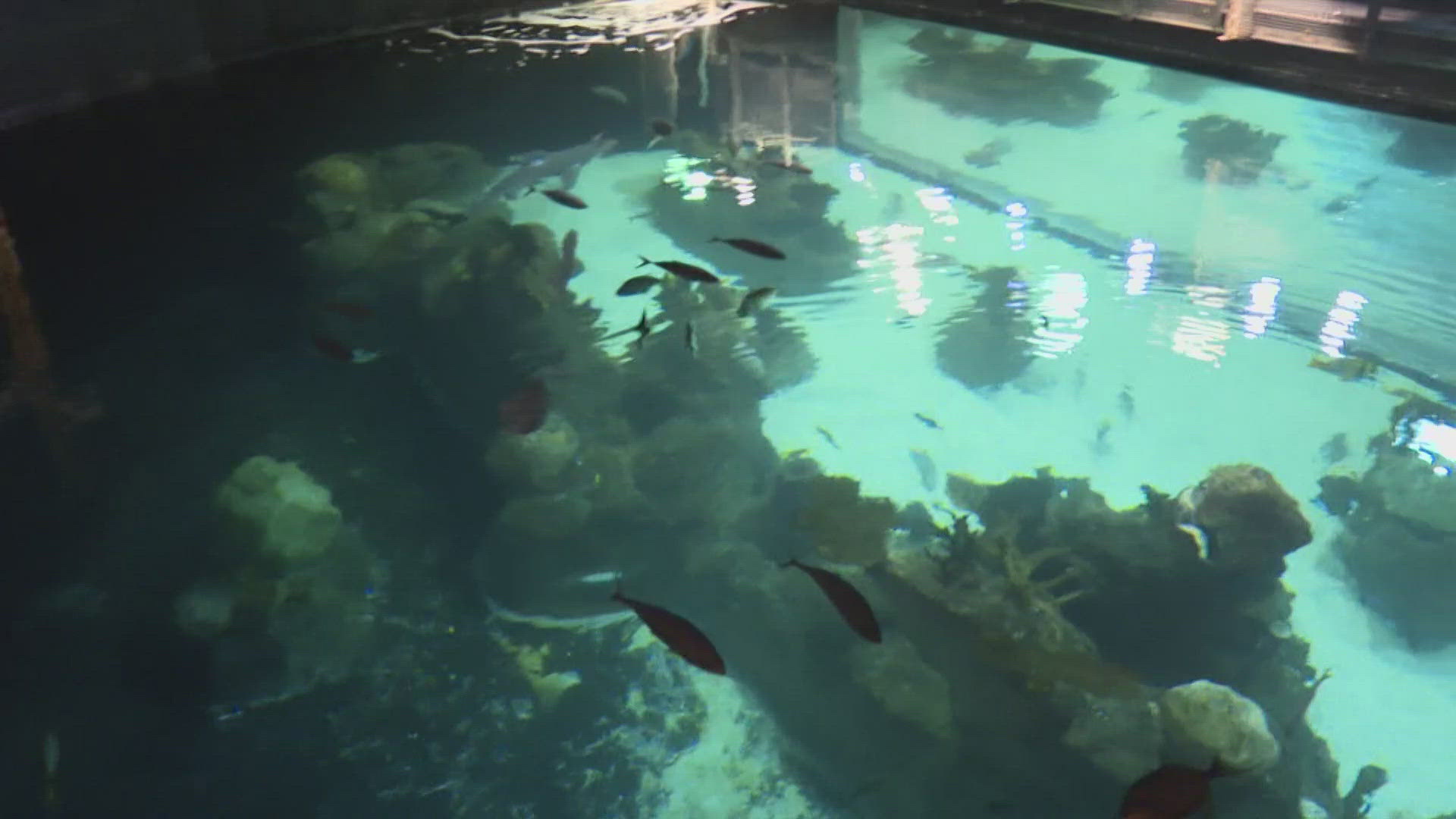GREENSBORO, N.C. — Cuteness alert!!
Two binturongs, aka bintlets, were born on May 5 at the Greensboro Science Center to parents Susan (female) and Mee-Noi (male).
Unfortunately, the bintlets are not currently able to be viewed by GSC visitors but don't worry, GSC plans to keep the public updated on social media on their progress.
These little guy's mom and dad were recommended for breeding by the Association of Zoos and Aquariums (AZA) Species Survival Plan (SSP) and are the first bintlet births at the GSC.
The SSP is meant to "maximize genetic diversity, appropriately manage the demographic distribution and long-term sustainability of TAG recommended Animal Programs within AZA member institutions," according to their website.
"Historically, binturong births have not been that common throughout AZA facilities and the population has been on a downward trend over the last 20 years," says Jessica Hoffman, VP of Animal Care and Welfare. "Only a few pairs continued to be successful, so that makes this new pairing of Susan and Mee-noi especially exciting for us. This birth now marks the fifth one in the last year throughout AZA, helping to strengthen the sustainability of this much loved species."
Bintlet baby photos
You might be asking yourself, though, what is a bintlet?
Binturongs are also known as bearcats but are not in either the bear or cat family. Bintlets are in the Viverridae family, where civets and fossas also originate.
Bitnlets are carnivores and are one of two carnivorous species with a prehensile tail, or a tail that is meant to grasp or hold objects.
While they are considered carnivores, funnily enough, their diet mostly consists of fruits and berries. The animals are native to the rainforests of South and Southeast Asia.
"The intent of Revolution Ridge has always been to spark a revolution in new thinking and awareness about the eroding freedoms of life in the wild. Just like human beings, all wild creatures want to live their lives as nature intended. AZA accredited institutions like the GSC offer the general public an educational window into the science of modern conservation. Successful breeding programs for rare animals have now become essential," said Glenn Dobrogosz, the GSC’s CEO.


